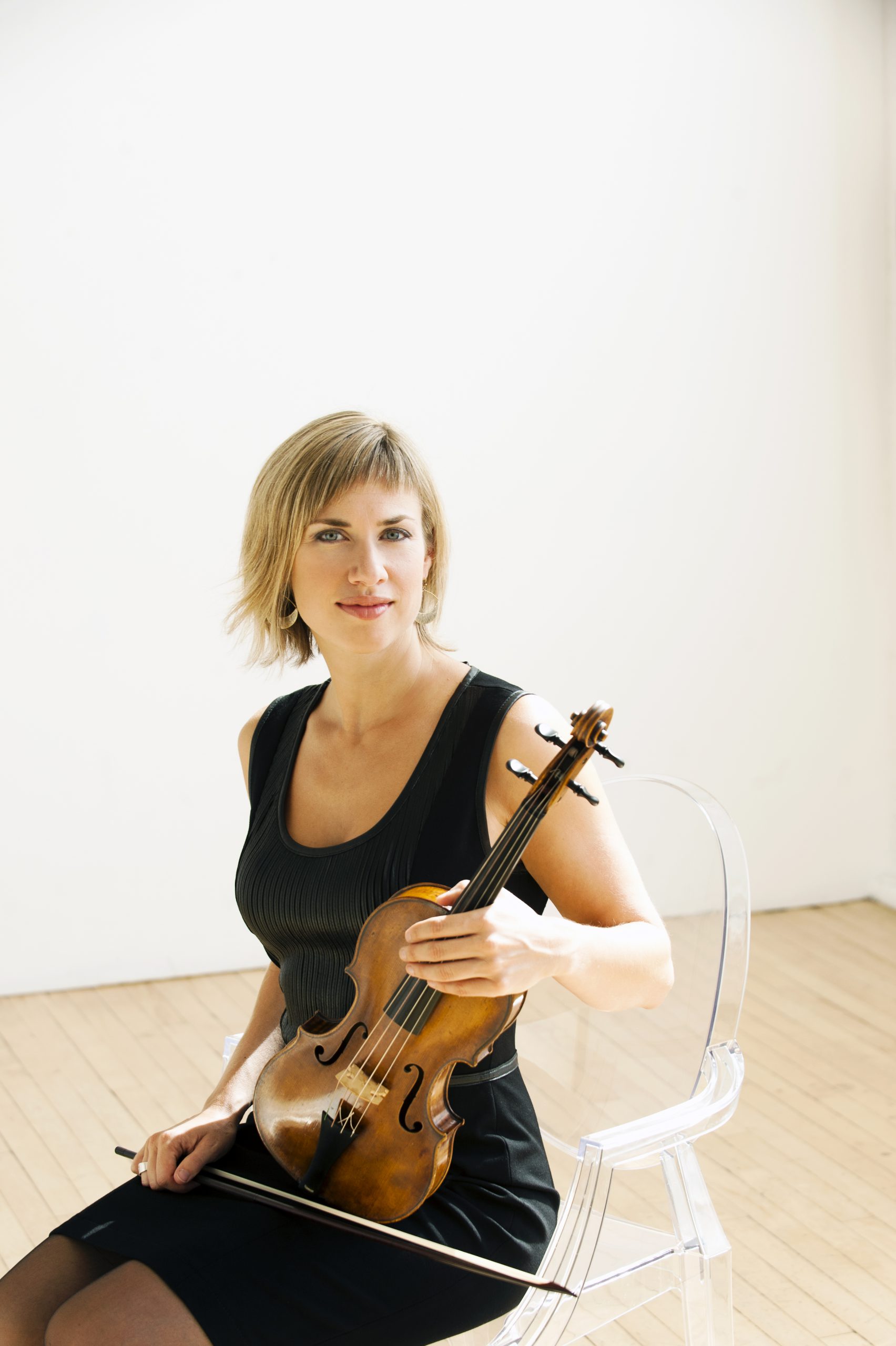Our upcoming concert series A Grand Tour of Italy, which features the Tafelmusik solo concerto debut of our own Cristina Zacharias, transports you to seventeenth century Italy, highlighting Italian composers and the violin. The Italians really embraced the violin — instrument makers, violinists, and composers: some would say this really is where the violin was born. Cristina took some time to chat with our Marketing Associate, Andrew Eusebio.
Cristina holds a Master of Music degree from McGill University. A core member of Tafelmusik Baroque Orchestra since 2004, she has performed across North America, Europe, Asia, and Australia, and can be heard on over 25 recordings for the ATMA, Analekta, CBC, BIS, Naxos, and Tafelmusik Media labels. Cristina appears annually at the Carmel Bach Festival, where she is the Assistant Principal Second Violin. Cristina is a frequent collaborator, guest soloist, and director with a diverse group of ensembles, and is equally passionate about baroque, classical, and modern repertoire.
Andrew Eusebio: How did you and the violin cross paths and what is it about the violin that audiences love?
Cristinia Zacharias: I started playing violin when I was five. My father had played violin as a child, and it was because of his and my mother’s interest in music that they signed both my three-year-old sister and me up for lessons in a Suzuki violin program. My sister later switched to cello, but I always loved the violin. I think audiences love the same things that that violinists love – the huge variety in sounds. The violin can sing like the voice, or can thrill with speed and virtuosity.
AE: We’ll talk soon about your solo concerto of Vivaldi’s “Le Cetra” but could you shed some light on the other pieces in the program? Are there any you’re particularly looking forward to performing?
CZ: I had the chance to play the Valentini 4-violin concerto many many years ago in Vancouver, and really loved the piece for its originality. I’ve tried a few times to find a way to play it in various concerts but it hasn’t ever happened. I’m very much looking forward to hearing it played by my talented colleagues!
AE: We’re very excited for your Tafelmusik solo concerto debut of Vivaldi’s “La Cetra,” op. 9: Violin Concerto in C Major. Can you talk about this piece and how you prepare for a concerto performance?
CZ: This concerto is the first of a set of twelve in Op. 9 that are all for the violin. You often hear jokes about there being too much similarity between Vivaldi’s many concertos, and I really think these are unwarranted! The more I study Vivaldi’s huge output the more amazed I am by his inventiveness and his wide range of ideas. When I study a Vivaldi concerto closely, I love to discover how he weaves together his musical ideas. He had the gift of making very complicated structures sound simple. When preparing a concerto performance like this, the process is very similar to how I prepare most music: start with the score and get to know how all the parts interact, then focus on my own part.
AE: What can our audiences expect and discover from this concert and its repertoire?
CZ: I think everyone who hears this concert will come away with a new appreciation for the incredible inventiveness of this period in Italy. All of the composers are so different, and their unique voices offer a vast array of ideas, soundscapes, and originality.
Hear Cristina perform in her Tafelmusik solo concerto debut and join us for A Grand Tour of Italy December 1–4 at Jeanne Lamon Hall, Trinity-St. Paul’s Centre, and December 6 at George Weston Recital Hall, Toronto Centre for the Arts. Tickets are available here.

